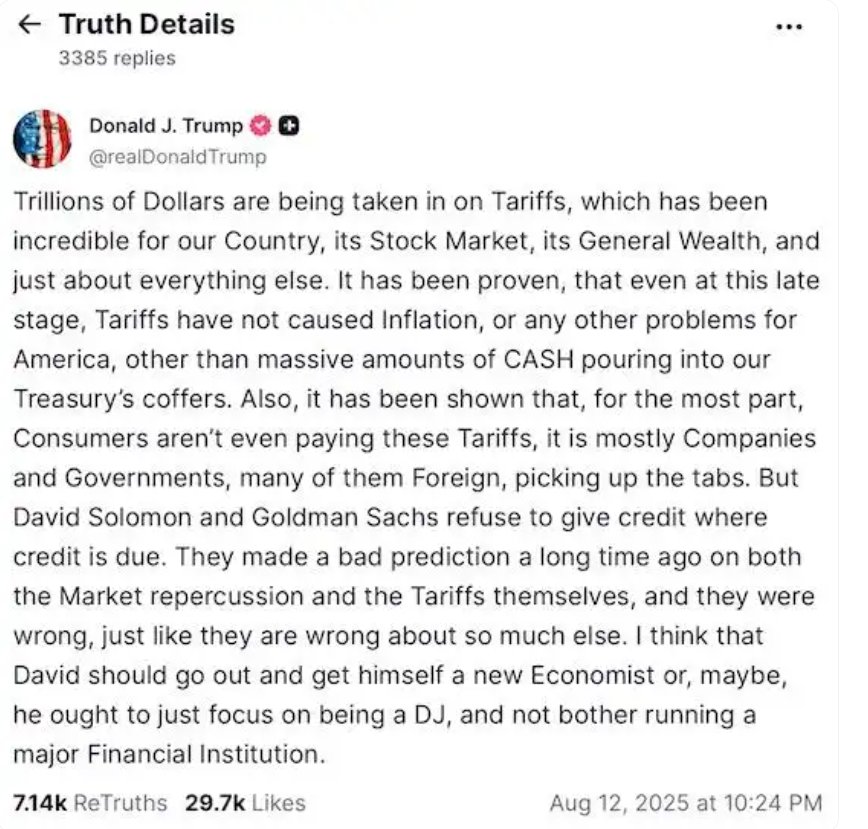Goldman Sachs Torpedoes Trump Tariff Theory; President Tells CEO "Be a DJ, Not Banker"

TradingKey - On August 12, local time, U.S. President Trump took to social media to criticize Goldman Sachs CEO David Solomon, stating that Solomon should "go out and get himself a new Economist" and mockingly suggesting that he should "focus on being a DJ, and not running a major Financial Institution."

The catalyst for this conflict was a recent research report by Goldman Sachs regarding the distribution of the costs of U.S. tariffs.
Goldman Sachs Chief Economist Jan Hatzius specified in the report that as of June this year, U.S. companies bore up to 64% of tariff costs, consumers took on 22%, while foreign exporters only shouldered 14% by lowering their export prices. The report warned that if the U.S. government continues with its current tariff policies, by October, the burden on American consumers will sharply rise to 67%, foreign companies will bear 25%, and the burden on U.S. companies will drop to just 8%.
This means that both currently and in the future, the main costs associated with tariffs imposed by the U.S. government are actually borne largely by domestic enterprises and consumers in America—especially future consumers.
This contrasts sharply with Trump's long-standing assertion that "tariffs are borne by foreigners," undeniably touching a nerve with him.
Trump robustly refuted this claim in his post, insisting that "it has been shown that, for the most part,Consumers aren't even paying these Tariffs, it is mostly Companiesand Governments, many of them Foreign, picking up the tabs." He also wrote that Solomon and Goldman "David Solomon and Goldman Sachs refuse to give credit wherecredit is due. They made a bad prediction a long time ago on boththe Market repercussion and the Tariffs themselves, and they were wrong."
Trump's statement contradicts the general consensus shared by numerous mainstream economists, including those at Goldman Sachs. Earlier in July, Morgan Stanley released a research report indicating that over the next decade, total tariffs potentially imposed by the U.S. government could reach $2.7 trillion, mostly being borne by American consumers.
On August 12th, data from the Bureau of Labor Statistics revealed ongoing domestic inflation pressures; July’s core Consumer Price Index (CPI), excluding food and energy, rose 0.3% month-over-month—marking its largest increase since January—and reached an annual rise of 3.1%, higher than June’s figure of 2.9%.
Reports from various parties indicate that current U.S. tariff policies have not generated significant benefits as claimed by Trump; instead, they are contributing to rising domestic inflation and fiscal deficits.







